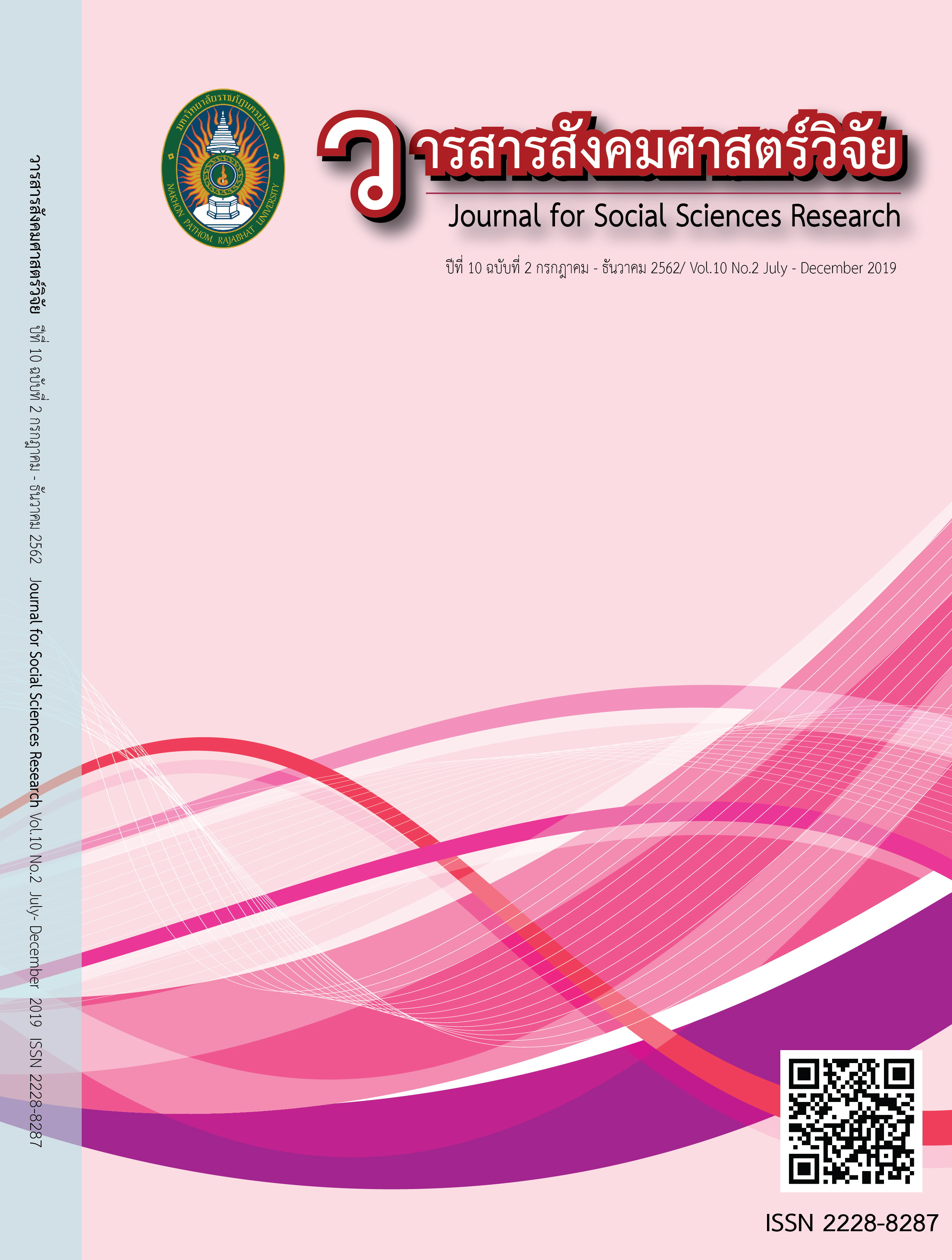ADMINISTRATORS’ EMOTIONAL INTELLIGENCE AFFECTING EFFECTIVENESS OF COMMUNICATION IN SCHOOLS UNDER OFFICE OF RATCHABURI EDUCATIONAL SERVICE AREA 1
Main Article Content
Abstract
The purposes of this research were to study: 1) the emotional intelligence of school administrators under Office of Ratchaburi Educational Service Area 1; 2) the effectiveness of communication in school under Office of Ratchaburi Educational Service Area 1; and 3) the administrations’ emotional intelligence affecting the effectiveness of communicated in school under Office of Ratchaburi Educational Service Area 1. The sample was 123 administrators and 317 teachers 440 derived by stratified random sampling. The research instrument was a 5-scale questionnaire with the reliability of 0.93. The statistics used for data analysis were percentage, mean, standard deviation, and stepwise multiple regression for hypothesis testing.
The research results were as follows:
- Overall the administrators’ emotional intelligence were at the highest levels. The aspects, in the descending order, were self-motivation, self-control, perception of others, self-awareness, and social skills.
- Overall the communication effectiveness in schools were at the highest levels. The aspects, in the descending order, were communication with supervisors, school socialization, communication climate, horizontally informal communication, quality of communication media, individual feedback, school overview, and communication with subordinates.
- The administrators’ emotional intelligence in aspects of self-awareness (X1), social skills (X5), and self-control (X2) affected the effectiveness of communication in school at the .01 level of significance. All three variables could predicted the effectiveness of the communication in school at the percentage of 28.2. The equation was as follows:
Ytot = 1.365 + 0.249(X1) + 0.194(X5) + 0.202(X2)
Ztot = 0.239(X1) + 0.244(X5) + 0.199(X2)
Article Details
บทความที่ได้รับการตีพิมพ์เป็นลิขสิทธิ์ของมหาวิทยาลัยราชภัฏนครปฐม
เนื้อหาของแต่ละบทความเป็นทัศนะของผู้เขียน ซึ่งที่ปรึกษา บรรณาธิการ กองบรรณาธิการ และคณะกรรมการบริหารวารสารไม่จำเป็นต้องเห็นด้วย หรือร่วมรับผิดชอบใดๆ


